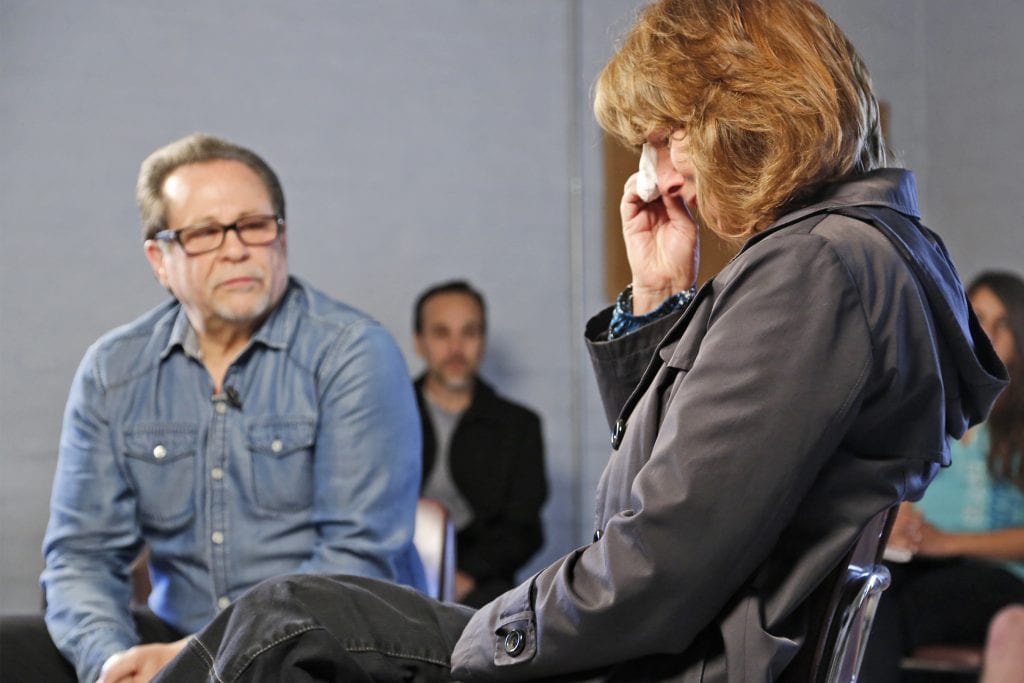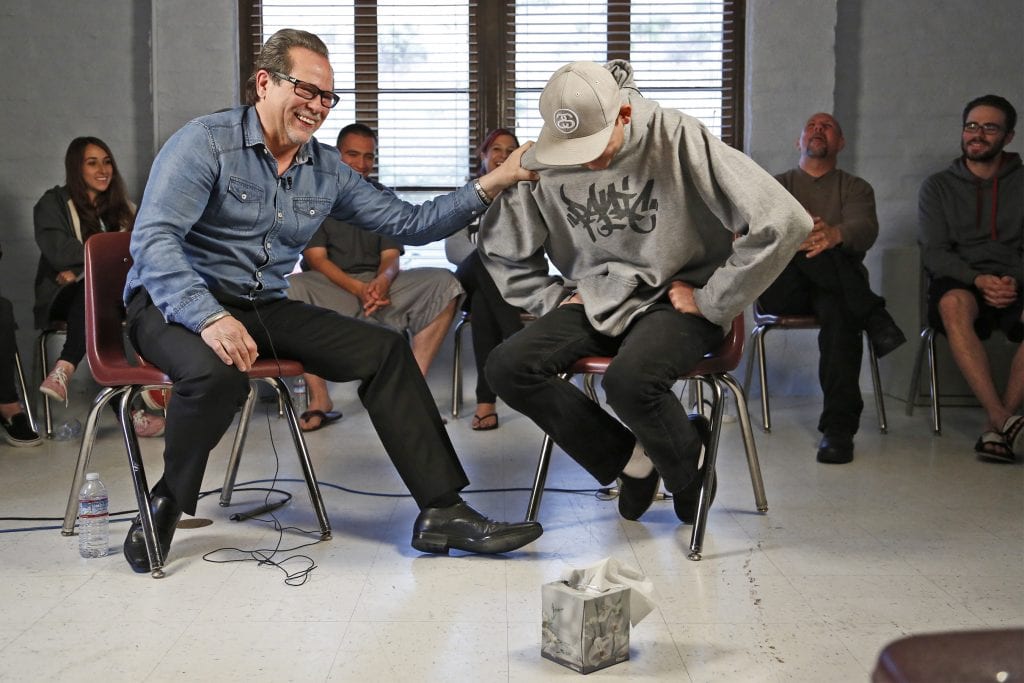Today, Emilie Calabrese is three years clean and sober.
Her story of getting to that point, however, one of several shared Monday at a symposium called A Talk About Heroin and Drug Addiction, aimed at helping Santa Clarita Valley families struggling with addiction, living similar stories today.
Emilie shared details of her pain and recovery after her mother shared her own story of struggle, pain and getting her daughter into recovery, as two dozen symposium attendees who showed up at the Action Family Counselling center on Soledad Canyon Road listened.
The first thing Emilie told the group: “It never gets easy hearing my mom’s version of what happened.”
Mother and daughter each shared the story of how the addiction began – with marijuana and alcohol.
“Then I started using heroin,” Emilie told the group.


At one point, Emilie held up her hand to show how she used a “bent knife” to break into a locked room at her house and then steal and sell whatever she stole for drug money.
Fast forward to a time just over three years ago, Emilie woke up, she said, and “saw a 35-year-old man, my dealer, sitting there with some random other people.
“And, I thought ‘This is my life at 18.’ But, I didn’t want to be a missing seat at the table,” Emilie said, and she called her mom.
That desperate phone call made to her mother, however, to hear Emilie’s mother tell it, was not a simple phone call.
“I got a phone call,” Emilie’s mother, Kellee, told the group. “She said ‘Mom, you have to come and get me. I’m in a bad area of Lancaster. You have to come get me.’”
Kellee got in the car at 11 p.m., she said, drove to Lancaster and spent the next six hours driving around trying to find her daughter, leaving without her when the sun came up.
“I was so broken hearted to leave without my daugher,” Kellee said.
The next night, she received the same passionate plea from her daughter – a text, since her phone had been stolen, or was lost or misplaced.
The desperate text message was the same as the desperate phone message. It said: “Mom, you have to come get me.”
Again, Kellee drove to Lancaster.
For four nights, she received the same desperate plea for help, she said. “After four days, I was heartbroken and I was angry. I resigned myself to the thought that she (Emilie) is going to die.”
Kellee was so convinced her daughter was going to die, she made sure her life insurance was up to date “so that I would have enough money to bury her. It was four days of this.
“I was scared to death, and I was scared for my own life, but something deep down in my soul said ‘You have to go.’
Kellee got in the car, again, and drove to Lancaster.


She told the group that on the fourth night of searching she sent her daughter one text message. It would be the final text, she said.
“I’m waiting 15 minutes,” she said, telling her daughter where she would park and wait.
“It was three in the morning and I almost started looking, but I didn’t,” Kellee said.
“Then I saw some movement from the darkness. It was my little girl. She weighed less than a hundred pounds and she got in the car.
“That night, I didn’t get to sleep. I was watching her chest rise and fall,” she said, making sure she was alive.
Then came the actual struggle to physically get her into rehab and to Action Family Counseling Director Cary Quashen.
“I physically had to get her into the shower she was so weak,” Kellee said.
Once Emilie was in the car, mother and daughter drove to rehab in Piru.
“When we got there, two therapists came out. One of them said ‘We’ve been waiting for you, Emilie. Let’s go. We have lots of work to do.’
“And, now, my baby girl is three years sober,” Kellee said, beaming. “I’m so proud of the woman she’s become and of her willingness to get sober.”


[email protected]
661-287-5527
on Twitter
@jamesarthurholt








